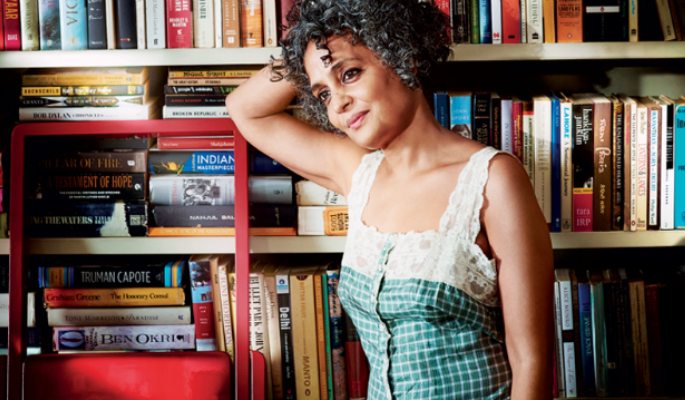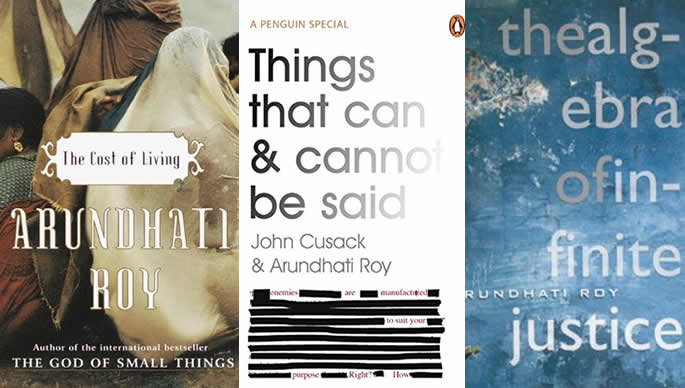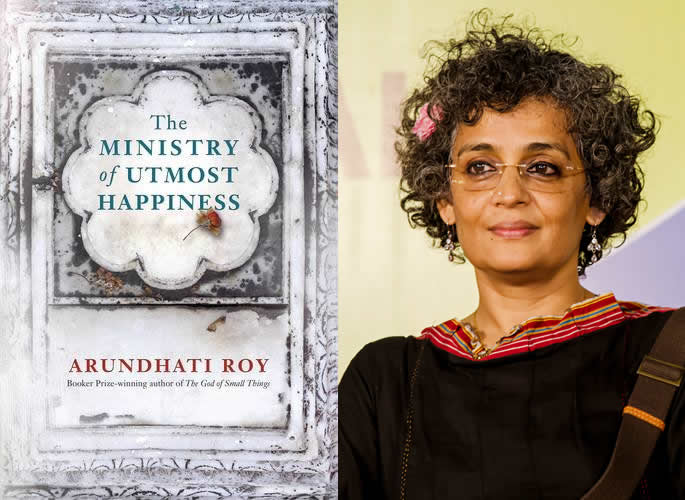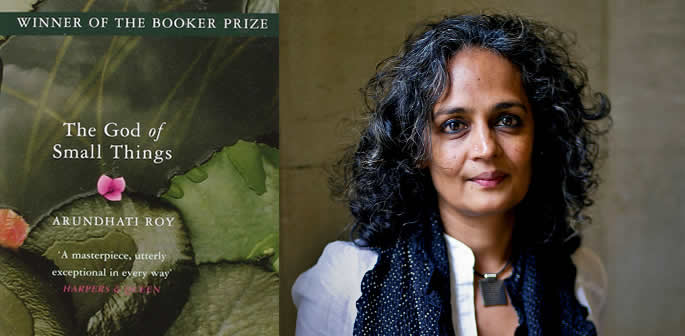"It is more important to engage with society, to live it, to have different experiences."
Arundhati Roy drew loads of media attention and international acclaim after her debut novel The God of Small Things, a semi-autobiography of her growing years.
The incredible novel won Roy the Man Booker prize in 1997. Her only novel for 20 years, Roy went on to delve into politics and social activism, using her words to write essays and manifestos that challenge national issues.
Arundhati Roy also appeared as one of TIME’s 100 Most Influential People of 2014.
DESIblitz looks back into this spirited woman’s life and work.
The Early Years
“And the air was full of Thoughts and Things to Say. But at times like these, only the Small Things are ever said. Big Things lurk unsaid inside.” – The God of Small Things
Arundhati Roy as born on November 1961 in geographically rich Meghalaya, the abode of clouds.
Her mother was a women’s right activist. Roy’s parents separated when she was merely 2 years old. She studied architecture at the School of Planning and Architecture, Delhi.
In 1984, she played a role in Massey Sahib, an award-winning movie directed by Pradip Krishen, an indie filmmaker. Eventually, Arundhati Roy married Pradip. Both of them worked hand-in-hand in many projects.
The writer has always emphasised her relish for connectivity and engagement within society rather than interest to achieve great milestones in life.
Describing herself, Arundhati says:
“I have never been particularly ambitious. I am not a careerist, I am not trying to get anywhere in a career. It is more important to engage with society, to live it, to have different experiences.”
Penning Screenplays and Acting

“Another world is not only possible, she is on her way. On a quiet day, I can hear her breathing.”
In 1989, Roy wrote the screenplay for In Which Annie Gives It Those Ones, portraying her experiences as an architecture student. Roy won the National Film Award for Best Screenplay for the movie.
She also penned the screenplay for the film, Electric Moon in 1992.
Interestingly, Roy’s husband, Pradip Krishen directed both movies. They were commended for their storylines.
The God of Small Things
“Perhaps it’s true that things can change in a day. That a few dozen hours can affect the outcome of whole lifetimes. And that when they do, those few dozen hours, like the salvaged remains of a burned house—the charred clock, the signed photograph, the scorched furniture—must be resurrected from the ruins and examined. Preserved. Accounted for. Little events, ordinary things, smashed and reconstituted. Imbued with new meaning. Suddenly they become the bleached bones of a story.” – The God of Small Things
Arundhati Roy wasn’t new to the limelight via her screenplays and acts. However, it is her novel The God of Small Things which paved the way towards international acclaim and honour.
Critics compare Arundhati Roy’s writing to William Faulkner, one of the most celebrated writers in American literature.
Arundhati Roy’s debut novel, a contemporary masterwork, has been read across the world with much enthusiasm and zest. The God of Small Things is an influential family chronicle in the backdrop of an intense political parade.
It is the story of an affluent Indian family. It recounts painful battles within the system such as outlawed love, untouchability, and counterfeit conventions.
The novel explores the lives of seven-year-old twins Estha and Rahel. With the arrival of their beautiful cousin Sophie, their world is disturbed and lives changed forever. So many unfortunate events take lead as tragedies unfold one after another.
It won the 1997 Booker Prize for Fiction and listed as one of the New York Times Notable Books of the Year for 1997. It was named as one of the five best books of 1997 by Time. Translated into many languages across the world, the book proves to be a huge commercial success as well.
The God of Small Things is an opulent, lyrical, and honest tale. A prized breakthrough from which Roy’s literary career, as well as political activism, flourished and revived.
Activism and Involvement

“See, ma’am, frankly speaking this problem can’t be solved by us police or military. The problem with these tribals, is they don’t understand greed. Unless they become greedy there’s no hope for us. I have told my boss, remove the force and instead put a TV in every home. Everything will be automatically sorted out.” – Broken Republic: Three Essays
Since the late 1990s, Roy has absorbed herself into political activism and nonfictional writing, advocating for a greater social change. She is one of the key people in the anti-globalisation movement.
A fervent critic of neo-imperialism, she argues with India’s policies towards promoting nuclear weapons. She also condemns the negative consequences of industrialisation.
She strongly condemns USA’s war against terrorism calling it a mask to invade other countries and exploit them:
“When he announced the air strikes, President George Bush said: ‘We’re a peaceful nation.’ America’s favourite ambassador, Tony Blair, (who also holds the portfolio of prime minister of the UK), echoed him: ‘We’re a peaceful people.’ So now we know. Pigs are horses. Girls are boys. War is peace.”
She has published several non-fiction anthologies mostly on her stance on the new world order. Her works include An Ordinary Person’s Guide to Empire, The Algebra Of Infinite Justice, Power Politics, and Broken Republic: Three Essays.
Roy was famous for her appeal for international attention against what she called a government-sponsored genocide of Tamils in Sri Lanka in 2009. Roy termed the Sri Lankan IDP camps, where Tamil civilians are being held, as concentration camps.
“Suppose there are 10 people in this room. Seven are starving, and one is winning medals, and two are doing OK.
“And I say, ‘Look at these seven people who are starving,’ and you say, ‘Oh don’t be so negative, no, things are not so bad – look at the other three.’ Really?”
Arundhati Roy carries on to fighting against the inequalities, injustice and bigotry through her writings and talks.
Awards and a New Novel

“I am glad to report that the mad souls (even the wicked ones) in The Ministry of Utmost Happiness have found a way into the world, and that I have found my publishers.”
Arundhati Roy has received numerous awards for social advocacy, social work and campaigns including the Sydney Peace Prize 2004.
She also was awarded the Sahitya Akademi Award 2006, for her collection of essays on contemporary issues, The Algebra of Infinite Justice. But she refused to accept it in objection to the policies of the Indian Government.
Roy is releasing a new novel after an extended 20-year break. DESIblitz is waiting enthusiastically for the arrival of her new novel, The Ministry of Utmost Happiness in June 2017.






























































